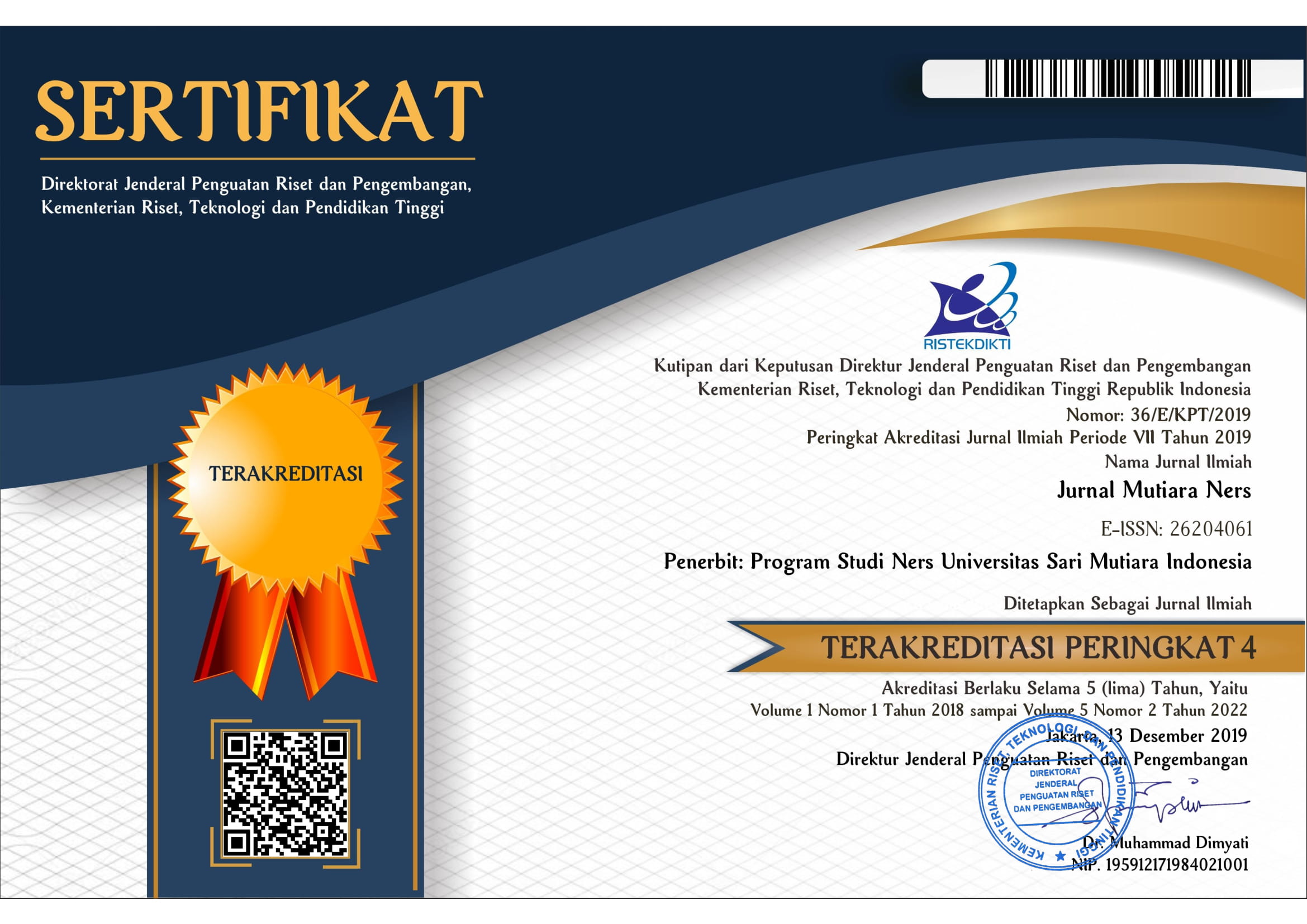PENGARUH PROMOSI KESEHATAN REPRODUKSI TERHADAP TINGKAT PENGETAHUAN SISWA DI SMA KALIMANTAN BARAT
Keywords:
Reproduction Health, Knowledge, Health Promotion, AdolescentsAbstract
Background: Adolescence is a transition from childhood to adulthood, during this time many complex problems occur so that they must be able to solve these problems to become a quality next generation. Problems that can occur in adolescence include reproduction health problems such as unwanted pregnancy, abortion, and sexually transmitted diseases (STDs). One strategy that can be used to increase adolescent knowledge is to provide health promotion. Adolescents begin to explore their thoughts and find out about the changes that occur in themselves. Objective: This study aims to determine the effect of reproductive health promotion on the level of student knowledge in Mamiamas Ngabang High School. Method: This study is a quantitative study with a quasi-experimental method with one group pre-test-post test design, with 145 respondents. Results: From the results of the t-test there are differences in the level of knowledge between before and after health promotion (p <.005) with significance .000, based on the results of the magnitude of p obtained, it was concluded that there was an influence on the promotion of reproductive health on the level of student knowledge about reproductive health at Maniamas Ngabang High School. Recommendation: providing regular health promotion to provide information at a further level can increase adolescent awareness about reproduction health.
Downloads
References
BKKBN. (2017). Laporan Kinerja Instansi Pemerintah 2016. BKKBN.
Buzarudina, F. (2013). Efektivitas penyuluhan kesehatan reproduksi remaja terhadap tingkat pengetahuan siswa sman 6 kecamatan pontianak timur tahun 2013 (Doctoral dissertation, Tanjungpura University).
Fauziah, A. (2015). Pengaruh Penyuluhan Generasi Berencana terhadap Tingkat Pengetahuan dan Sikap Kesehatan Reproduksi pada Siswa Kelas VIII di SMPN 1 Kokap Kulon Progo (Doctoral dissertation, STIKES'Aisyiyah Yogyakarta).
Karundeng, F. F., Solang, S. D., & Imbar, H. S. (2015). Pengaruh Promosi Kesehatan Reproduksi Remaja Terhadap Pengetahuan Dan Sikap Siswa SMP Negeri 08 Bitung. JIDAN (Jurnal Ilmiah Bidan), 3(2), 8-11.
Kemenkes. (2018). Profil Kesehatan Indonesia Tahun 2017. Jakarta: Kementerian Kesehatan RI.
Kosassy, S. M., & Sinthania, D. (2015). Pengaruh Pendidikan Kesehatan Reproduksi Dengan Metode Mentoring Terhadap Pengetahuan Kesehatan Reproduksi Pada Remaja SMP N 4 Palembayan 2014. Jurnal Kesehatan, 6(2).
Marmi. 2015. Kesehatan Reproduksi. Pustaka Pelajar. Yogyakarta
Notoatmodjo, S. (2010). Ilmu perilaku kesehatan. Jakarta: rineka cipta, 200, 26-35.
SDKI. (2017). Badan kependudukan dan keluarga Berencana Nasional. Jakarta: BKKBN.
Setiyaningrum, E., & Aziz, Z. B. (2014). Pelayanan Keluarga Berencana dan Kesehatan Reproduksi. Jakarta: Trans Info Media.
Udu, W. S. A., & Wiradirani, P. Y. W. (2015). Pengaruh Intervensi Penyuluhan Terhadap Pengetahuan dan Sikap Remaja Tentang Kesehatan Reproduksi. Medula, 1(2).
UNFPA. 2016. Universal Access to Reproductive Health: Progress and Challenges. United Nations Population Fund
Paleeri, S. (2015). Setting Objectives of Value Education in Constructivist Approach in the Light of Revised Blooms Taxonomy (RBT). Journal on School Educational Technology, 10(3), 1-12.
World Health Organization. (2019). Global action plan on physical activity 2018-2030: more active people for a healthier world. World Health Organization.







.png)
